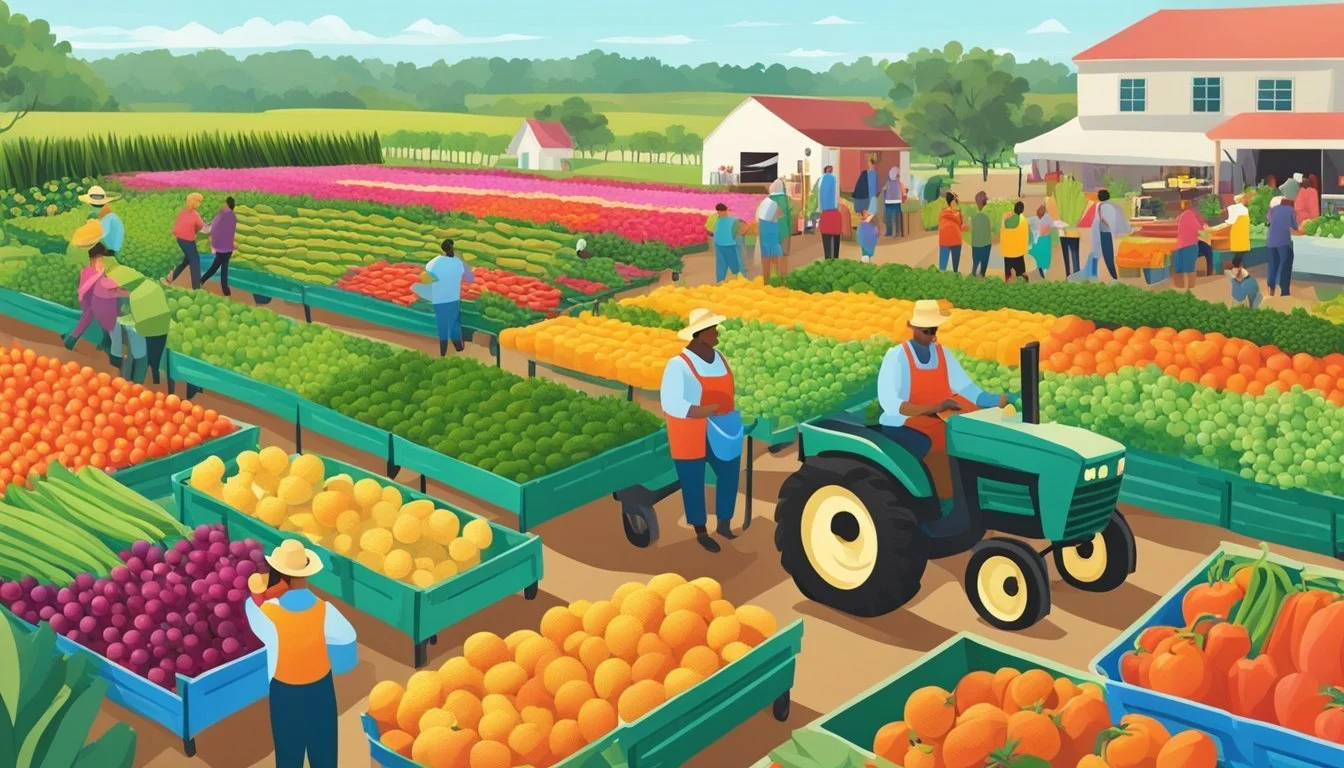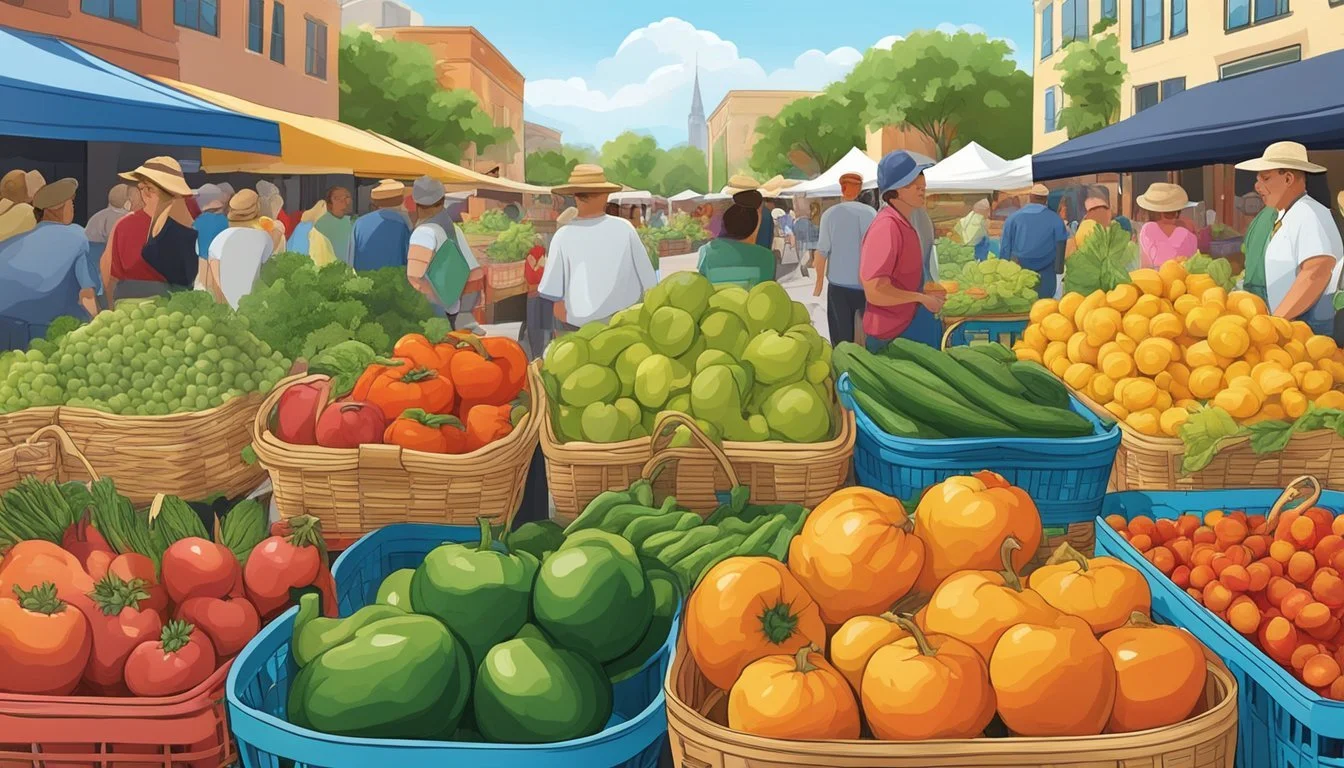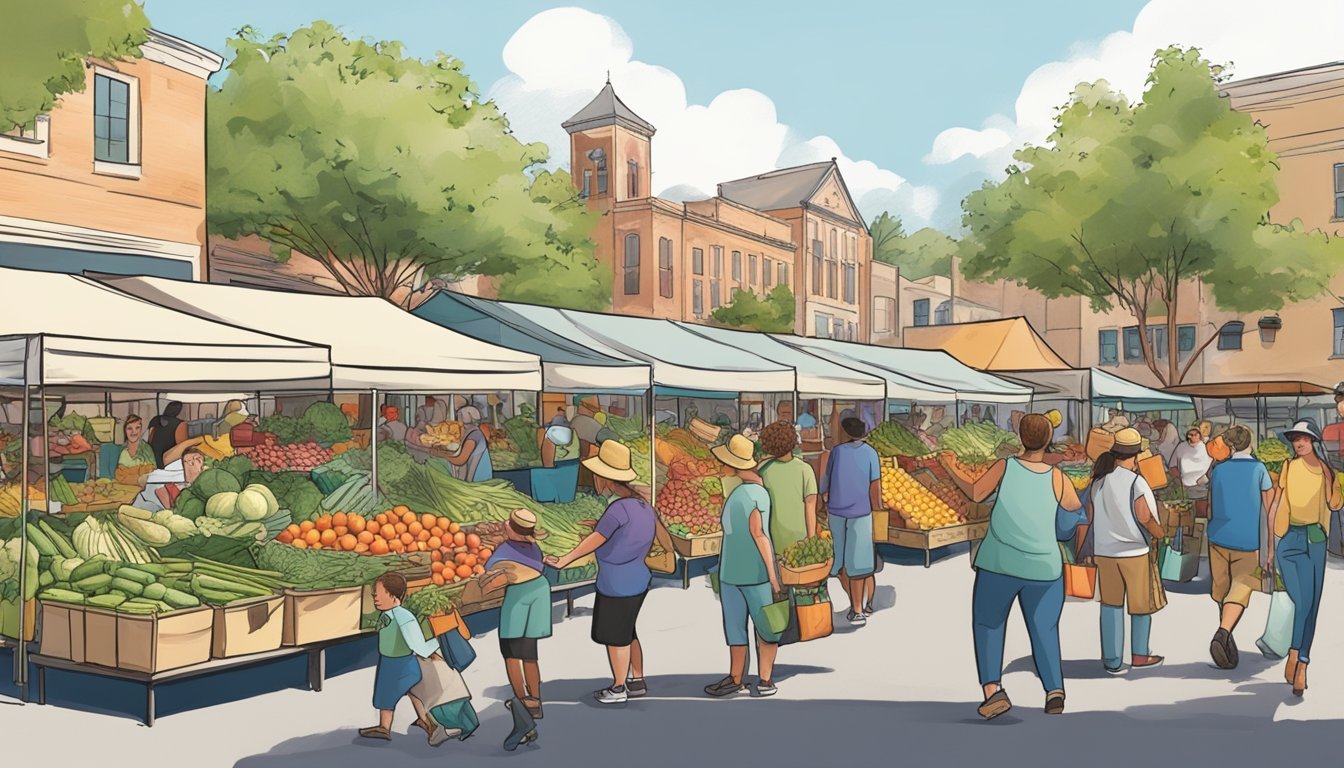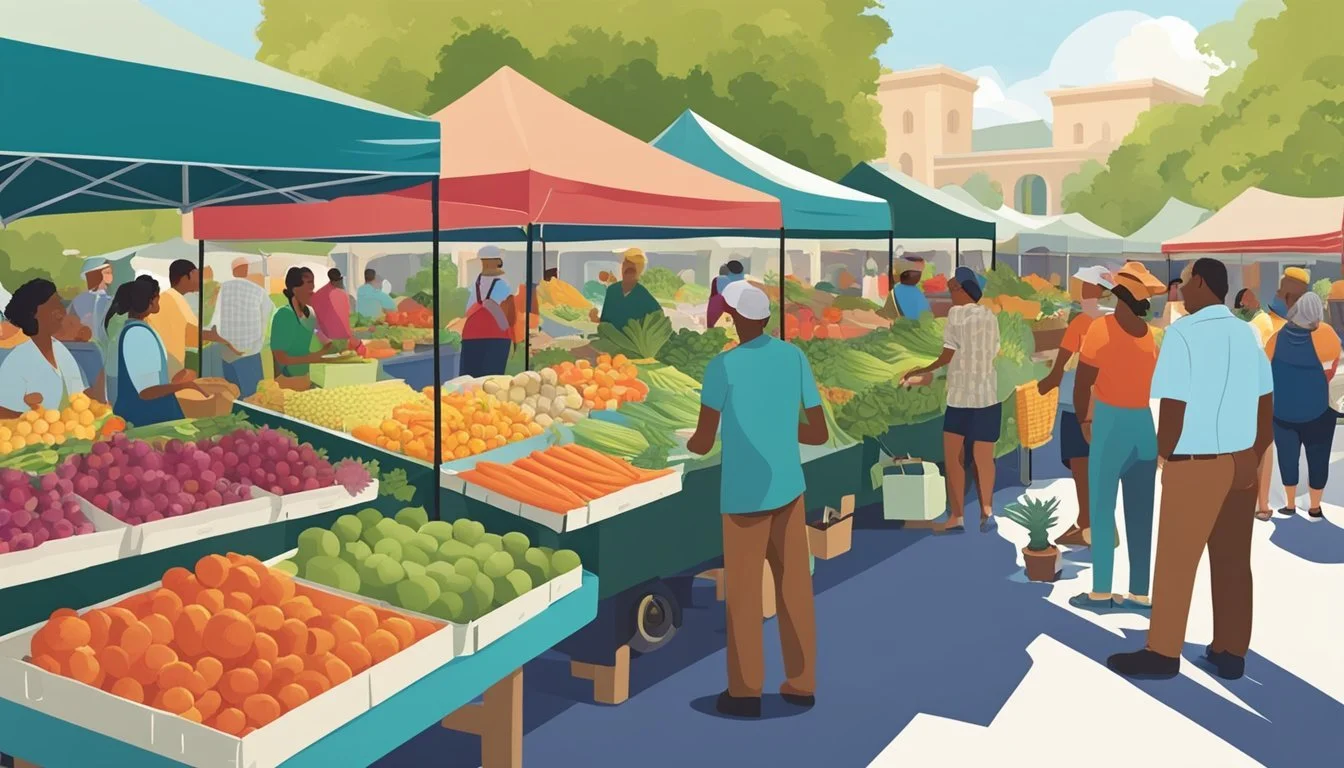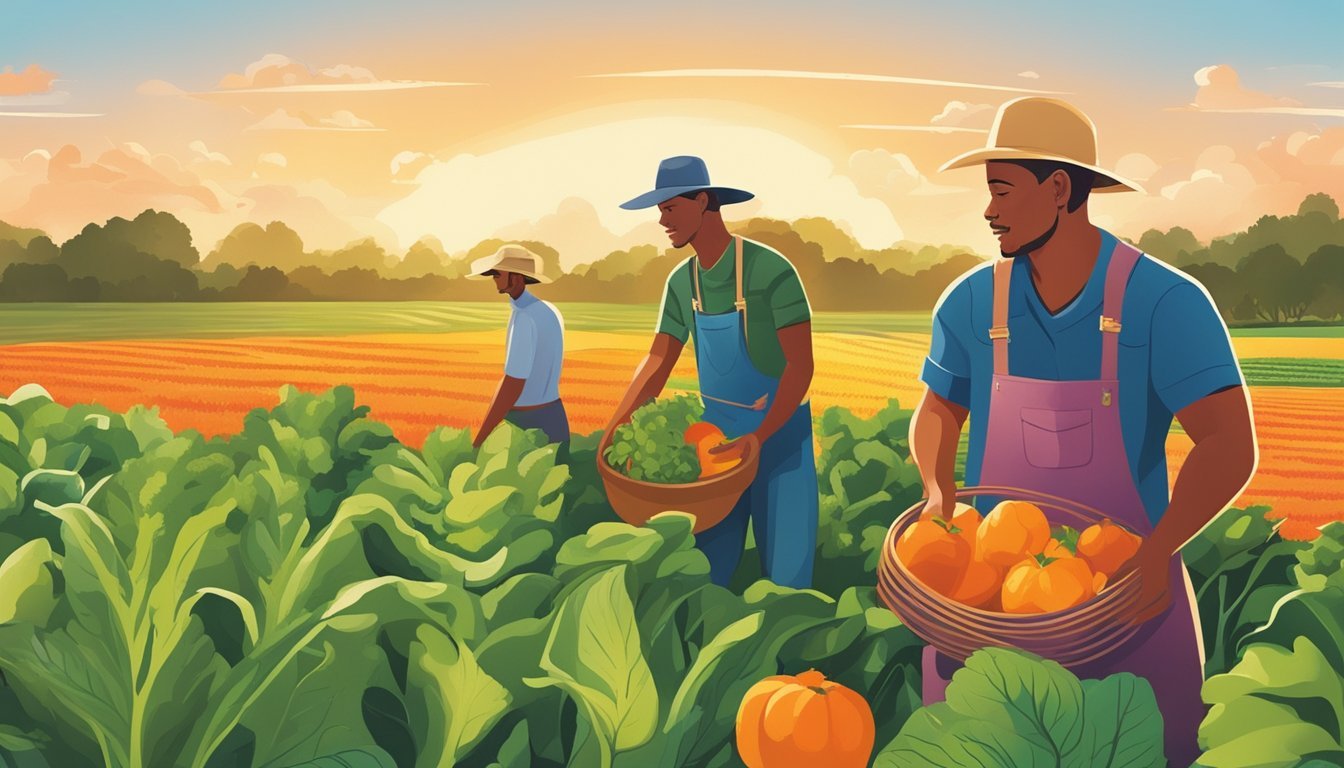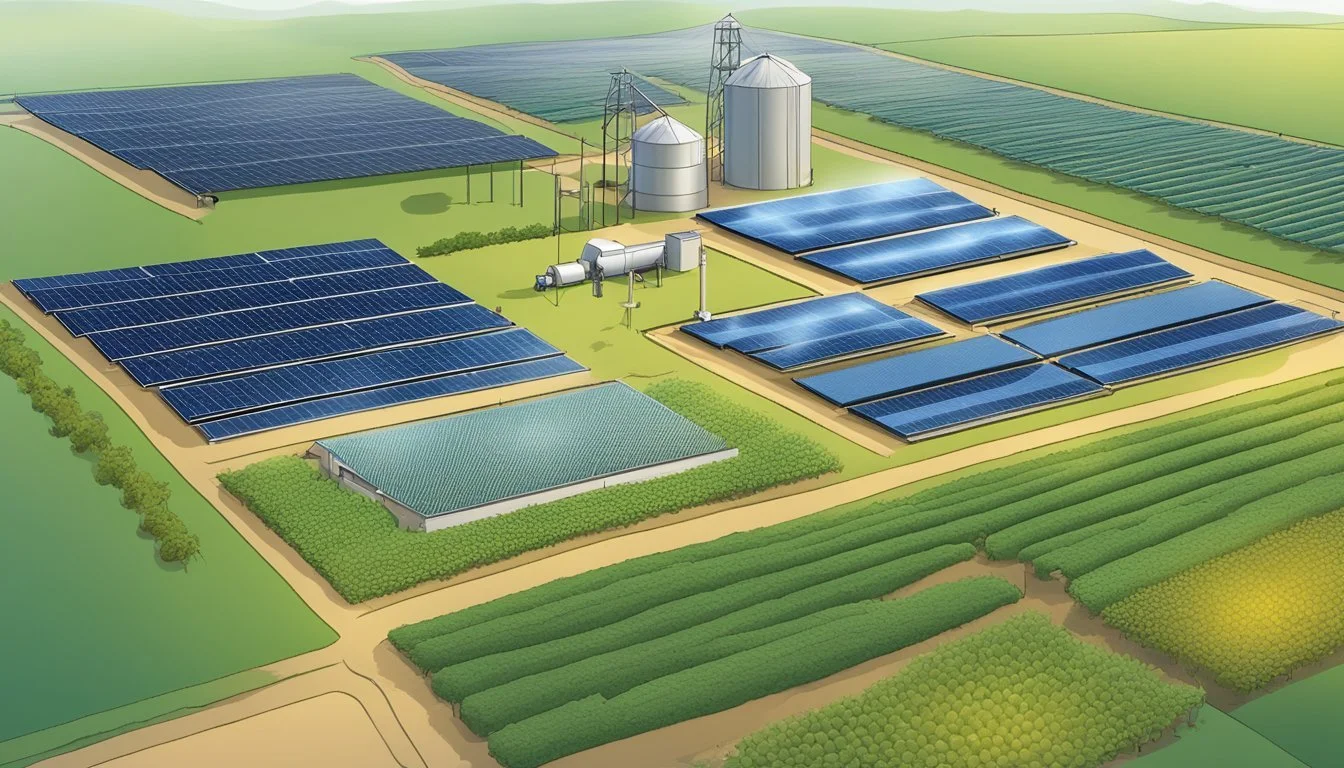Community Supported Agriculture (CSA) in Orlando, FL
A Guide to Fresh, Local Produce
Community Supported Agriculture (CSA) has taken root in Orlando, Florida, offering residents a way to directly engage with local agriculture. CSAs operate on a fundamental principle: members purchase a share from a farm, and in return, they receive a steady supply of fresh, locally grown produce throughout the farming season. This model not only provides consumers with fresh food but also establishes a financial backbone for farmers, allowing them to plan their crops with a degree of certainty.
In Orlando's vibrant food scene, CSAs have emerged as a credible avenue to access nutrient-rich, farm-fresh produce while also contributing to sustainable farming practices. The approach aligns with the desires of environmentally conscious consumers and nutritionists who advocate for reducing the food miles associated with what we eat. By supporting CSAs, Orlando locals can ensure their food comes from a known source just a short distance away from their homes.
The city's CSA programs are varied and tailored to different needs. Some farms offer full shares for households with greater needs or half shares for smaller households or those new to the CSA model. Members can sometimes choose between traditional CSA models or innovative "rent-a-row" schemes that provide them a more hands-on approach to their food. As the concept of CSA gains traction in Orlando and beyond, it has become a critical component of the growing movement toward sustainable and localized food systems.
Benefits of Participating in a CSA
Community Supported Agriculture (CSA) offers multiple benefits to members in Orlando, FL, ranging from accessing fresh produce to bolstering local economies. Each benefit contributes to the well-being of individual members and the community at large.
Fresh and Seasonal Produce
CSA members enjoy seasonal produce that is often picked at its peak of freshness, which can lead to enhanced flavor and nutritional value. Frequent deliveries mean that fruit and vegetables reach consumers quickly after harvest, ensuring a freshness that is difficult to match in traditional retail environments.
Supporting Local Farmers
Joining a CSA directly supports local farmers by providing them with a dependable cash flow, which helps sustain their farm operations. Members develop a relationship with those who grow their food, fostering a sense of mutual support and community.
Environmental Advantages
Environmentalists laud CSAs for their reduced carbon footprint as the transport of fresh produce involves shorter distances. Many CSA farms in Orlando also follow certified organic practices or adhere to organic standards, thereby minimizing the use of harmful pesticides and fertilizers in farming practices.
Health and Nutritional Benefits
Nutritionists appreciate the emphasis on health and nutrition in the CSA model. Members gain access to a variety of organic produce, which can contribute to a balanced diet. Additionally, some CSAs offer not just fruits and vegetables, but also items like eggs, meat, and herbs.
Economic Impact
By joining a CSA, members are directly investing in their local food system, which can have substantial economic benefits. Money spent with local growers stays within the community and is more likely to be reinvested locally, fostering economic resilience.
Understanding CSA Membership
Community Supported Agriculture (CSA) in Orlando, Florida, offers a symbiotic relationship between local farms and consumers. Members receive regular shares of locally-grown produce, fostering community engagement and supporting sustainable agriculture practices.
How CSA Works
CSA operates on a subscription-based model where consumers purchase a membership with a local farm before the growing season begins. Members prepay for a season's worth of certified organic produce or other farm products. This model provides farmers with working capital and mitigates some of the risks associated with agriculture. In return, members get to enjoy a variety of fresh and often certified organic produce throughout the harvest. LocalHarvest is a network that lists various CSAs, making it easier for consumers to find options near them.
Types of CSA Shares
The shares in a CSA can vary. Standard shares typically include a variety of seasonal vegetables and fruits each week. However, various CSAs offer different types of shares that could include:
Vegetable Shares: A selection of seasonal vegetables.
Fruit Shares: A variety of local fruits.
Egg Shares: Fresh eggs from the farm's poultry.
Meat Shares: Assortments of grass-fed, free-range meat.
Some CSAs operate on a 'rent-a-row' model where members receive the produce grown in a specific plot they sponsor, providing a unique hands-on experience.
Choosing the Right CSA for You
When choosing a CSA, prospective members should consider:
Variety: What types of products are offered?
Flexibility: Can you customize your share or are the selections pre-determined?
Pick-up Locations: Are the drop-off points conveniently located?
Payment Plans: Do they offer a payment system that fits your budget?
Evaluating these factors will help ensure that the CSA membership aligns with the consumer's lifestyle and preferences. This process promotes a successful and rewarding partnership between farmers and the community.
CSA Seasonal Calendar in Orlando
Community Supported Agriculture in Orlando provides a way for consumers to buy seasonal produce directly from local farms. Knowing what is available each season helps members plan their meals and stay connected to the agricultural rhythm.
Winter Harvest
During the winter months, local farms like Frog Song Organics, located near Oviedo and Hawthorne, typically offer a variety of cool-weather crops. Members can expect to see:
Greens: Kale, Spinach, Collards
Root Vegetables: Beets, Carrots, Radishes
Citrus Fruits: Oranges, Grapefruits
These items are usually in season and available through winter CSA programs in the Orlando area.
Year-Round CSA Programs
Several farms around Orlando, such as Frog Song Organics, offer CSA programs that operate throughout the year. These programs provide a diverse range of produce:
Spring: Strawberries, Lettuce, Peas
Summer: Tomatoes, Cucumbers, Peppers
Fall: Squash, Pumpkins, Sweet Potatoes
By having a year-round presence, these CSAs ensure that Orlando residents always have access to fresh and in-season local produce.
Logistics of Joining a CSA
Joining a Community Supported Agriculture (CSA) program in Orlando, FL, requires understanding sign-up procedures, pick-up locations, and payment options to ensure a smooth membership experience.
Sign-Up Procedures
Individuals interested in joining a CSA in Orlando need to select a farm and apply for membership. They may need to fill out a form detailing their subscription preferences, such as the size of the produce shares they wish to receive. Following the farm's specific enrollment period is critical, as memberships are often limited and operate on a first-come, first-served basis.
Pick-Up Locations
CSA members collect their shares at designated pick-up locations. These locations vary by farm and can include farmers' markets, dedicated drop-off points, or the farm itself. Common pick-up spots in the Orlando area include the Winter Park Farmers' Market and the Winter Garden Farmers Market. Some farms also offer home delivery for an additional fee.
Payment Options
Payment for CSA shares is typically required upfront, which aids the farm's cash flow and planning. Most CSA farms accept a variety of payment methods, including:
Cash
Checks
Credit Cards
Online Payments
Some farms may also offer payment plans to help spread the cost over the season. This financial commitment reflects the mutual support between the CSA members and the farm, underpinning the core concept of shared risk and reward.
The Role of CSA in the Community
Community Supported Agriculture (CSA) in Orlando connects consumers directly with local farms, fostering a system of mutual support. This partnership allows for transparent relationships, improved access to fresh produce, and shared responsibility between the community and agriculture.
Building Community Relationships
CSA programs in Orlando are pivotal in cultivating strong bonds between consumers and local farmers. They facilitate a mutual support system where members typically pay upfront for a share of the season's harvest, directly investing in local agriculture. This model engenders loyalty and a shared commitment to farmers' success. Such programs can often be found listed in local food directories, making it easier for community members to find and join a CSA.
Education and Outreach
Education is a core component of CSA, with farms providing insights into sustainable farming practices. They often host farm visits and workshops, elaborating on the relationship between food production and environmental stewardship. Outreach efforts include newsletters and community events, which serve to inform members about the nuances of agriculture, seasonal changes, and the importance of supporting local economies through CSA membership.
Comparison with Other Market Options
Community Supported Agriculture (CSA) in Orlando offers distinctive benefits and experiences compared to other market options. Consumers value CSAs for their direct relationship with local farmers and often see it as a means to support the community by contributing to the local economy.
CSA vs. Farmers Markets
Farmers Markets allow consumers to purchase goods from a variety of local vendors on a pay-as-you-buy basis. Customers enjoy the flexibility of choosing from several farmers and often find a broad range of products, from produce to artisanal goods.
Directness: CSAs provide a straight-from-the-farm experience, but farmers markets introduce consumers to a wider array of local farmers.
Product Range: Farmers markets generally offer a broader selection compared to a single CSA.
Community Engagement: Both options foster community ties, but farmers markets can be particularly sociable venues, buzzing with activity.
CSA vs. Grocery Stores
Grocery Stores bring convenience and a year-round assortment, albeit with trade-offs relating to the origin and freshness of produce.
Produce Origin: Grocery stores stock produce from various sources, frequently encompassing non-local options. Conversely, CSAs pride themselves on local food provision.
Freshness: CSA members often receive produce that is freshly picked, potentially enhancing flavor and nutritional value, which may not always be matched by grocery store offerings.
Support for Local Economy: CSA memberships contribute directly to local farmers' livelihoods, whereas grocery store purchases may not always benefit local producers.
Both market options come with their respective merits, and the choice largely hinges on consumer preference for variety, convenience, and the type of impact they wish to make in their local food system.
Managing Risks and Expectations
Community Supported Agriculture (CSA) in Orlando, FL, is built on a model that balances the production risks between growers and the community. This model requires a mutual understanding of the inherent variability in crop production.
Shared Risk Philosophy
Community Supported Agriculture (CSA) operates on a shared risk framework, where members of the CSA invest in the farm's production at the start of the season. This investment implies that both the community and the growers are partners in the agricultural process, sharing the benefits of abundant harvests and the setbacks of lower yields. CSA members are often aware that their commitment helps to cover some of the initial production costs and risks that the farmers face.
Understanding Crop Variability
Crop production is subject to many variables, including weather, pests, and other natural events. Seasonal produce can be prolific one year and sparse the next. CSA members typically acknowledge this variability; it is a fundamental aspect of supporting local agriculture. In Orlando, growers communicate with members about what can be reasonably expected regarding the type and volume of produce throughout the growing season. This transparency helps to manage expectations and cultivate a sense of community resilience.
Technological Aspects of CSA
In Orlando's Community Supported Agriculture (CSA) ventures, the deployment and integration of technology play a crucial role in expanding reach and streamlining operations. Technologies facilitate better communication with members while managing farms and data effectively.
Importance of Online Presence
An online presence is indispensable for CSAs in establishing a network with potential and existing members. A comprehensive online platform serves as an interface where consumers can learn about the CSA, sign up for memberships, and receive updates. Orlando-based CSAs make use of websites and social media to engage with their community, providing details on available produce, pickup locations, and farming practices. The integration of Application Programming Interfaces (APIs) with the online presence allows for seamless data transfer, relevant for keeping inventory and member choices updated in real-time.
CSA Management Software
To efficiently handle the complexities of farm operations and member management, CSA organizers employ CSA Management Software. These systems can centralize databases holding member data, facilitate online payments, and manage distribution logistics. Market manager tools within the software support the tracking of sales and inventory, predicting patterns that optimize the CSA's offerings. Leveraging technology in this way not only simplifies the intricate data management tasks but also ensures the CSA remains resilient and responsive to both consumer demand and agricultural variables.

